Elisabeth Leonskaja, Schubert's greatest living interpreter, was always going to be Queen of Scotland's East Neuk for three summer days; her performances of four piano works and the "Trout" Quintet with outstanding string players were transcendental. But this festival is exceptional in keeping several pertinent strands flowing, from year to year and within the annual span. So there were rival events to match the classical peak: guitarist Sean Shibe and clarinettist Julian Bliss solo and multiplied in a small hall by the sea, 60 brass players of all ages memorialising the former Fife mining industry in a big barn full of potato crates; and as usual the revelation of an exceptional young string foursome, this year the Castalian String Quartet.
Eleven substantial concerts over a long weekend is a lot to get your head round, even with sun on the sands - eventually - and an essential dip in the North Sea to offset all the music. Two mostly-string events in the morning and afternoon of my first full day in one of the acoustically excellent venues, Kilrenny Church, teetered on the cusp of saturation. But I was saved from wilting at further pure chamber music that evening by the Shibe/Bliss double act, an infallible galvaniser as well as something completely different. (Pictured below: the sand-sculpture of Schubert in Crail highlighting the festival's main Schubertiad.). 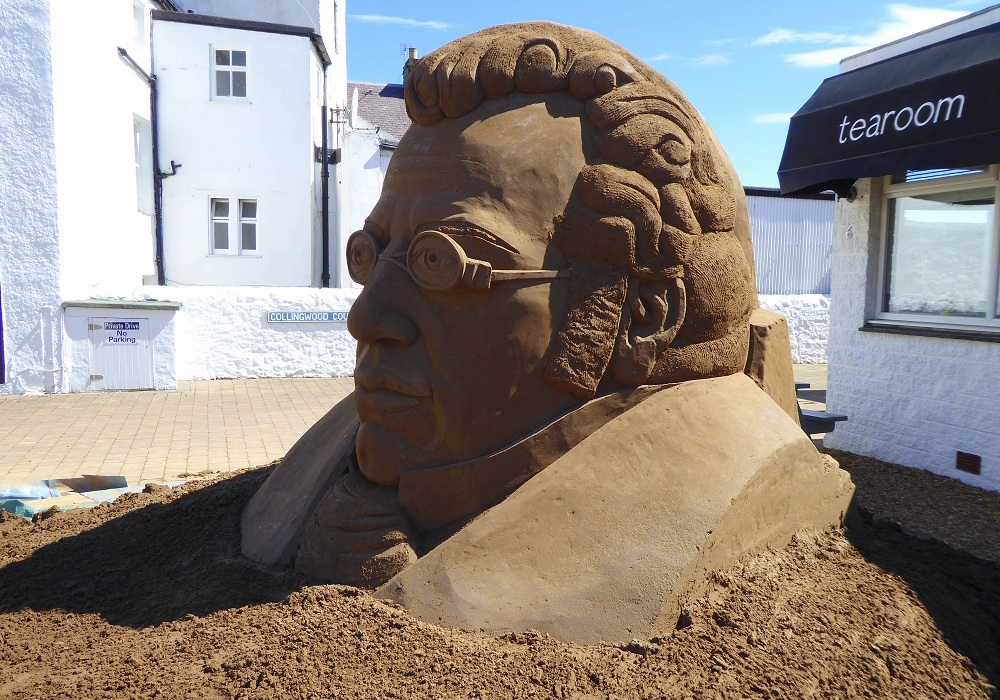 A tonic for a grey, drizzly morning was the Castalians' Kilrenny concert, with Cristina Gómez Godoy a technically perfect oboist in a bland Salieri Concertino sprucely done - one interesting viola line the only singular event - and the Mozart Oboe Quartet. The revelation, though, was the silvery playing of the Castalians in a relatively early Quartet (D353) by the 19-year-old Schubert, in which first violinist Sini Simonen's intonation-perfect spirit highlighted her role within the ensemble. I don't buy the line that Schubert looks backward too much to Mozart and Haydn here, any more than he does in the five very quirky movements constituting his first major Piano Sonata of D459, brought to vivid life by Leonskaja at the start of her recital the previous evening. Schubert’s lovable personality is everything, and the Castalians caught that, inspired – they told me – by having attended Leonskaja’s recital.
A tonic for a grey, drizzly morning was the Castalians' Kilrenny concert, with Cristina Gómez Godoy a technically perfect oboist in a bland Salieri Concertino sprucely done - one interesting viola line the only singular event - and the Mozart Oboe Quartet. The revelation, though, was the silvery playing of the Castalians in a relatively early Quartet (D353) by the 19-year-old Schubert, in which first violinist Sini Simonen's intonation-perfect spirit highlighted her role within the ensemble. I don't buy the line that Schubert looks backward too much to Mozart and Haydn here, any more than he does in the five very quirky movements constituting his first major Piano Sonata of D459, brought to vivid life by Leonskaja at the start of her recital the previous evening. Schubert’s lovable personality is everything, and the Castalians caught that, inspired – they told me – by having attended Leonskaja’s recital.
For the past three years there’s been one outstanding performance at the final concert given by the young musicians working at the festival’s week-long "Retreat" with string players of the calibre of Alexander Janiczek and two one-time members of the Alban Berg Quartet, Valentin Erben – another keen spectator at the Schubert concerts – and Isabel Charisius. This time it was decisively the Dvořák Sextet in which violinist Shoko Murakami, viola players Carl Lee and Lilya Tymchyshyn and cellist Ariana Kashefi worked with “leaders” Janiczek and Rafael Rosenfeld (pictured below rehearsing in Kilrenny Church). This was a dancing, vivacious, utterly committed interpretation which could travel to other festivals – as the Belcea Quartet’s Krzysztof Chorzelski told me the team he led for the stupendous Schoenberg Verklärte Nacht last year is to do this autumn. 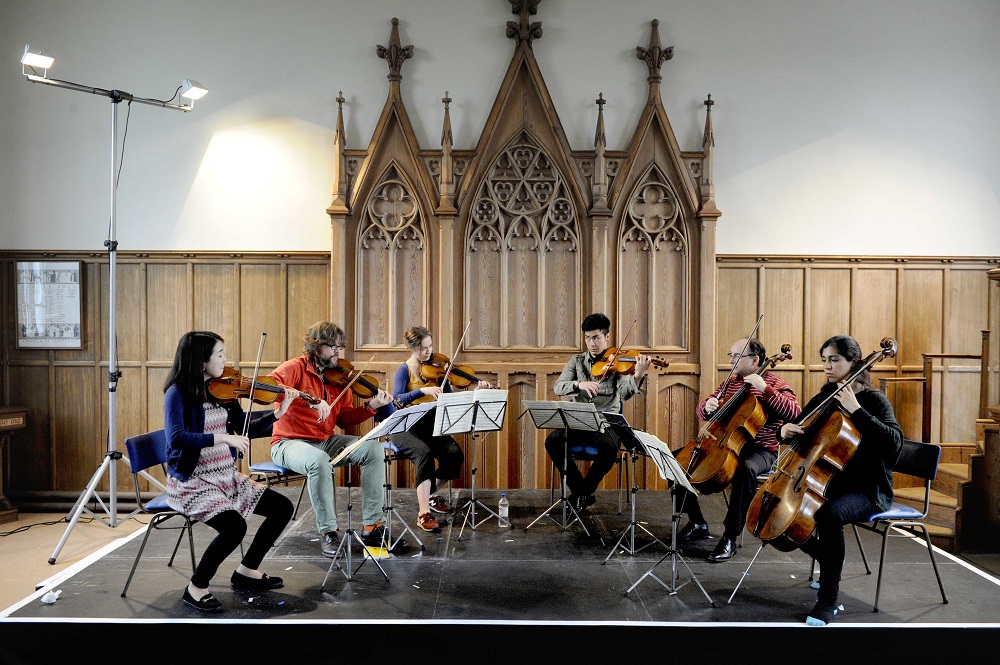 By early evening the last of the week’s rain had cleared for a calm night in Anstruther – aurally shattered, perhaps, by the louder end of the Shibe/Bliss double act at the tiny Dreel Halls. It began with that hauntingly inflected and coloured soft playing at which Shibe, more than any other acoustic guitarist I’ve ever heard, truly excels. After exquisite realisations of music from 15th- to 18th-century Scottish manuscripts, Edinburgh-born Shibe (pictured below in the Dreel Halls) gave the first of his eloquent speeches, about the parameters and delights of Crail-born James Oswald’s music, extracting magic from the 11-note limitations born of the fiddle Oswald played in the 1700s. Bliss followed Messiaen’s Abîme des Oiseaux, a space of single notes on the cusp of audibility and raucous birdsong, with the first of his daring Bach violin transcriptions for clarinet; later, the clarinettist mesmerised in Steve Reich’s New York Counterpoint and the guitarist with the American’s Electric Counterpoint, both featuring live and recorded selves.
By early evening the last of the week’s rain had cleared for a calm night in Anstruther – aurally shattered, perhaps, by the louder end of the Shibe/Bliss double act at the tiny Dreel Halls. It began with that hauntingly inflected and coloured soft playing at which Shibe, more than any other acoustic guitarist I’ve ever heard, truly excels. After exquisite realisations of music from 15th- to 18th-century Scottish manuscripts, Edinburgh-born Shibe (pictured below in the Dreel Halls) gave the first of his eloquent speeches, about the parameters and delights of Crail-born James Oswald’s music, extracting magic from the 11-note limitations born of the fiddle Oswald played in the 1700s. Bliss followed Messiaen’s Abîme des Oiseaux, a space of single notes on the cusp of audibility and raucous birdsong, with the first of his daring Bach violin transcriptions for clarinet; later, the clarinettist mesmerised in Steve Reich’s New York Counterpoint and the guitarist with the American’s Electric Counterpoint, both featuring live and recorded selves.
Yet the stunners were the loudest electrics, world premieres in their guitar formats, for which we’d been offered happily unnecessary earplugs – David Lang’s Killer transcribed from electric violin to guitar (still with kick drum adding a late shock), and Pulitzer Prize-winning Julia Wolfe’s LAD. This epic memorial to a dead friend was originally composed for nine bagpipers, echoing round the levels of the World Trade Centre. Only Shibe could have thought of asking her if she minded his transcribing it for nine electric guitars, his live personage with eight pre-recorded "ghost" Shibes. That's genius, a term which should rarely be applied to performing musicians, but at 25 Shibe has it. Even the sound of bagpipes, imitated when the music settled on a snatch of melody above a drone, isn't quite as searing as the electric guitars in the upward slides which slowly levitate the piece.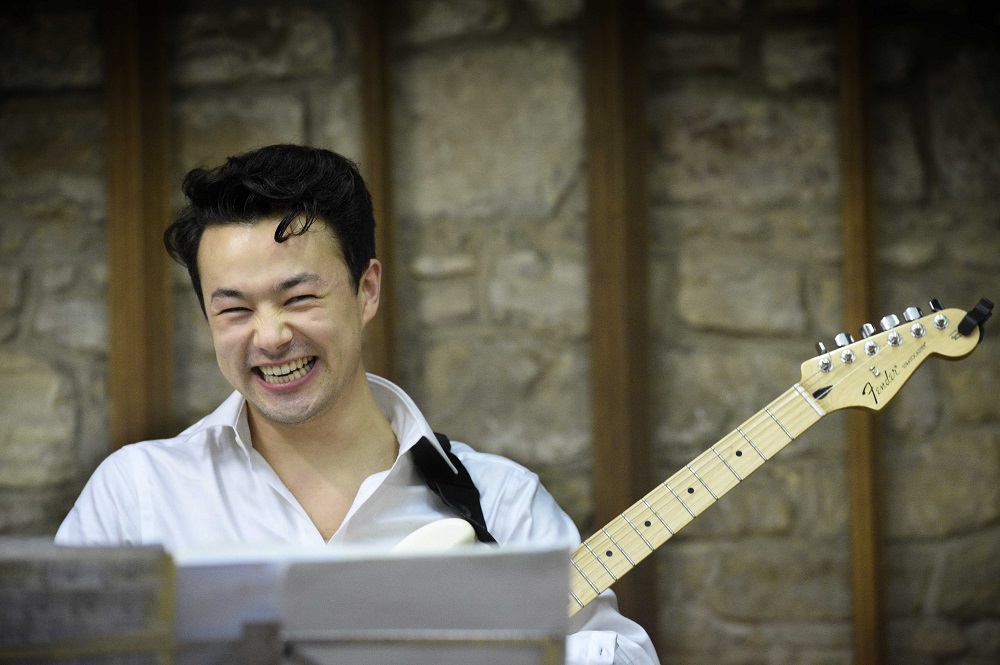 There was more outside-the-box thinking at the Sunday afternoon concert in Anstruther Town Hall, uniting the visceral duo of Shetland fiddler Chris Stout and Dundee-born harpist Catriona McKay with a groundbreaking string offshoot of the Scottish Chamber Orchestra, Mr McFall’s Chamber. The main work in their half of the concert was the unashamedly populist synthesis of Scottish, Danish and Norwegian music in the premiere of Henning Sommerro’s Chrysillis. It celebrates the grandson of a Crail weaver, Thomas Kingo, who had transplanted to Denmark, where two generations later Thomas the Younger became a famous poet, publisher and composer of hymns still popular in Scandinavia today. A little of this, and of the vivacious dance-pieces from the Stout-McKay duo, went a long way; to enjoy it all to the full, you needed to get up and dance. And for the first half the setting might better have been an East Neuk pub with a pint on the table around midnight, the better to mellow to the super-subtle Norwegian duo of Hardanger fiddler Nils Økland and jazz-rooted double-bassist Mats Eilertsen. They joined the rest at the end for Økland’s magical nature-picture, with cellist Su-a Lee consummate on the musical saw.
There was more outside-the-box thinking at the Sunday afternoon concert in Anstruther Town Hall, uniting the visceral duo of Shetland fiddler Chris Stout and Dundee-born harpist Catriona McKay with a groundbreaking string offshoot of the Scottish Chamber Orchestra, Mr McFall’s Chamber. The main work in their half of the concert was the unashamedly populist synthesis of Scottish, Danish and Norwegian music in the premiere of Henning Sommerro’s Chrysillis. It celebrates the grandson of a Crail weaver, Thomas Kingo, who had transplanted to Denmark, where two generations later Thomas the Younger became a famous poet, publisher and composer of hymns still popular in Scandinavia today. A little of this, and of the vivacious dance-pieces from the Stout-McKay duo, went a long way; to enjoy it all to the full, you needed to get up and dance. And for the first half the setting might better have been an East Neuk pub with a pint on the table around midnight, the better to mellow to the super-subtle Norwegian duo of Hardanger fiddler Nils Økland and jazz-rooted double-bassist Mats Eilertsen. They joined the rest at the end for Økland’s magical nature-picture, with cellist Su-a Lee consummate on the musical saw.
I had only time for part of the SCO’s all-string closing concert in the ENF’s new farmyard venue. The Bowhouse is not quite as acoustically perfect as the old potato barn on the Cambo Estate further up the coast, but bigger and better equipped. The highlight of what I heard was Pekka Kuusisto’s exhilarating transcription of Antin Mikko by the Finnish folk band JPP. What must have been a piquant commission on the programme, Steve King's arrangement of Oswald's The East Neuk o'Fife, made a neat homage to adorable festival co-founders Donald and Louise MacDonald.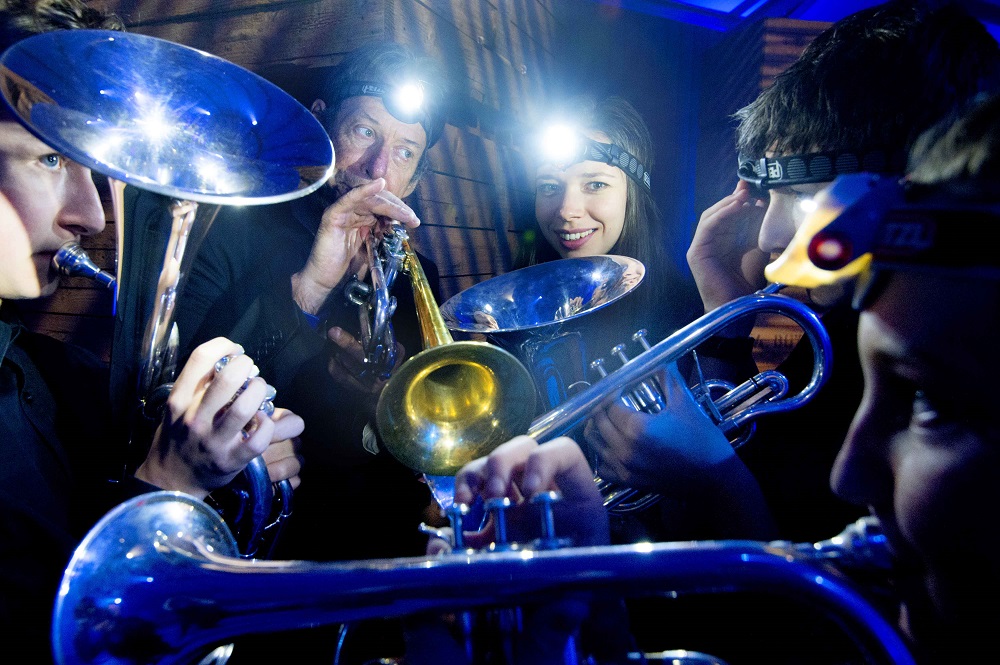 The full Bowhouse experience was the immersive De Profundis, masterminded by festival director Svend McEwan-Brown and that superb trumpeter John Wallace (pictured above with local brass players), scion of a family where three generations worked in the mining industries around Glenrothes. The brass band tradition originating in those Fife communities in the 1850s had been represented by such ensembles as the Coaltown of Balgonie Prize Silver Band, in which young Wallace played, and which leagued with the still-superb Tullis Russell Mills Band when the pit closed. The TRMB were among the five groups of young and old arraigned in the smoky semi-dark of the Bowhouse as we punters wandered in and around, catching strains of Walford Davies’s De Profundis alongside harmonised Hebridean psalm singing arranged by Wallace and interlaced with poems grippingly projected by actor Maureen Beattie. There would have been old former miners in the audience as well as children learning about their grandparents’ life in artistic form. Of the four ENF immersive events I’ve attended, this felt the most meaningful.
The full Bowhouse experience was the immersive De Profundis, masterminded by festival director Svend McEwan-Brown and that superb trumpeter John Wallace (pictured above with local brass players), scion of a family where three generations worked in the mining industries around Glenrothes. The brass band tradition originating in those Fife communities in the 1850s had been represented by such ensembles as the Coaltown of Balgonie Prize Silver Band, in which young Wallace played, and which leagued with the still-superb Tullis Russell Mills Band when the pit closed. The TRMB were among the five groups of young and old arraigned in the smoky semi-dark of the Bowhouse as we punters wandered in and around, catching strains of Walford Davies’s De Profundis alongside harmonised Hebridean psalm singing arranged by Wallace and interlaced with poems grippingly projected by actor Maureen Beattie. There would have been old former miners in the audience as well as children learning about their grandparents’ life in artistic form. Of the four ENF immersive events I’ve attended, this felt the most meaningful.
The other heart remained the festival’s second Schubertiad following its 10th anniversary spectacular in 2014. With Leonskaja present (pictured below by Marco Borggreve), it even surpassed the first. No pianist could reflect more of the comprehensive world represented in the terrifyingly difficult "Wanderer" Fantasy, in which Leonskaja’s sleight of hand took us from full-orchestral blazes to intimate lyricism in a second. It was good to hear two echt-Schubertian A minor sonatas, D537 and D854, which I hadn’t caught in the four concerts I heard of her first-ever Schubert sonatas cycle at the Verbier Festival. Still, as veteran colleague and fellow audience member Erben pointed out, Leonskaja constantly finds new depths in everything she plays, so even the familiar interpretations sounded new, every phrase quivering with life and meaning.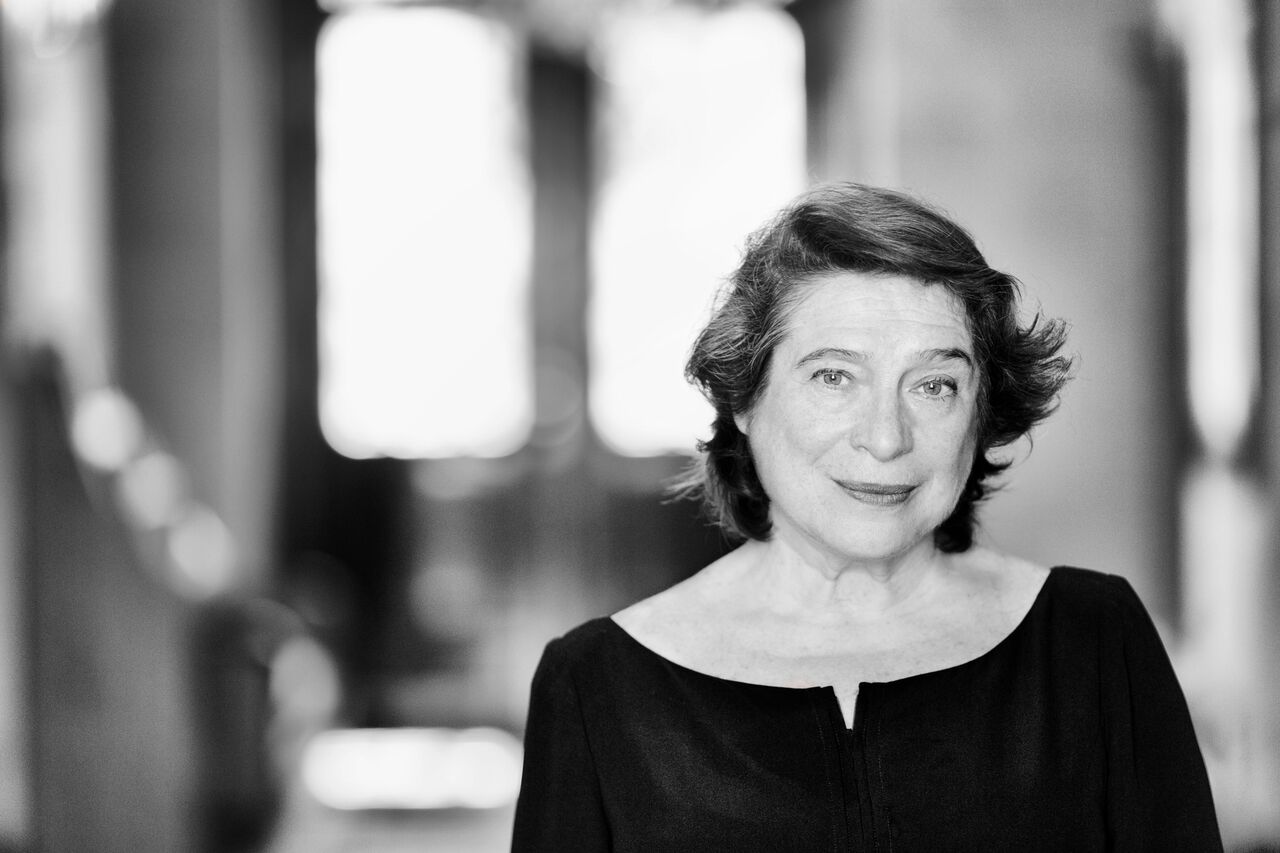 Those qualities abounded in the following afternoon’s Die schöne Müllerin from baritone Thomas Oliemans and pianist Malcolm Martineau. What Oliemans lacks in full vocal range – his top is too constricted at full pelt – he makes up for in nuance and the dramatic sense of the whole. Martineau was if anything even more magnetic, making us relish the genius of Schubert in turning on a constantly repeated but subtly altered phrase in a pivotal song like No. 12 (“Interlude”). Best of all, Schubertiad-wise, was last, Leonskaja joining with three members of the Belcea Quartet and double-bass player Alois Posch for a performance of the “Trout” Quintet which quickly struck that essential level reached in the most successful of meditations. Even at surface level, the glowing good humour of the performance harmonised beautifully with the special light of a perfect summer evening in Fife.
Those qualities abounded in the following afternoon’s Die schöne Müllerin from baritone Thomas Oliemans and pianist Malcolm Martineau. What Oliemans lacks in full vocal range – his top is too constricted at full pelt – he makes up for in nuance and the dramatic sense of the whole. Martineau was if anything even more magnetic, making us relish the genius of Schubert in turning on a constantly repeated but subtly altered phrase in a pivotal song like No. 12 (“Interlude”). Best of all, Schubertiad-wise, was last, Leonskaja joining with three members of the Belcea Quartet and double-bass player Alois Posch for a performance of the “Trout” Quintet which quickly struck that essential level reached in the most successful of meditations. Even at surface level, the glowing good humour of the performance harmonised beautifully with the special light of a perfect summer evening in Fife.
Next page: watch Sean Shibe perform Britten's Nocturnal after Dowland

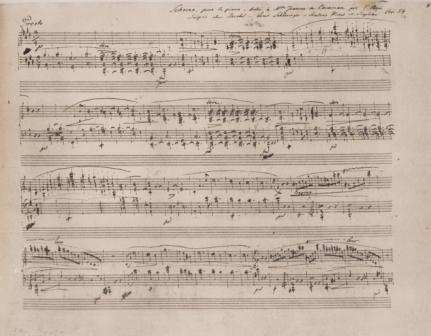 Five of the amazing Mazurkas, a selection of which Kolesnikov has recorded, showed Chopin’s infinite variety on the most intimate scale: playful in the major-key specimens, from the charm of the composer’s youth to the contrast of the rustic-rollicking C major, Op. 56 No. 2 with the sophisticated A flat major, Op. 50 No. 2; and introspective in the minor, supremely so in an intensely chromatic swansong (Op. 68 No. 4). Kolesnikov had even chosen a brighter action to his Yamaha plano for the third part of his programme, necessitating a keyboard change by four technicians while he chatted sensibly with Petroc Trelawny; like Richter, he never makes the instrument produce the brittle clarity for which it can be notorious.
Five of the amazing Mazurkas, a selection of which Kolesnikov has recorded, showed Chopin’s infinite variety on the most intimate scale: playful in the major-key specimens, from the charm of the composer’s youth to the contrast of the rustic-rollicking C major, Op. 56 No. 2 with the sophisticated A flat major, Op. 50 No. 2; and introspective in the minor, supremely so in an intensely chromatic swansong (Op. 68 No. 4). Kolesnikov had even chosen a brighter action to his Yamaha plano for the third part of his programme, necessitating a keyboard change by four technicians while he chatted sensibly with Petroc Trelawny; like Richter, he never makes the instrument produce the brittle clarity for which it can be notorious.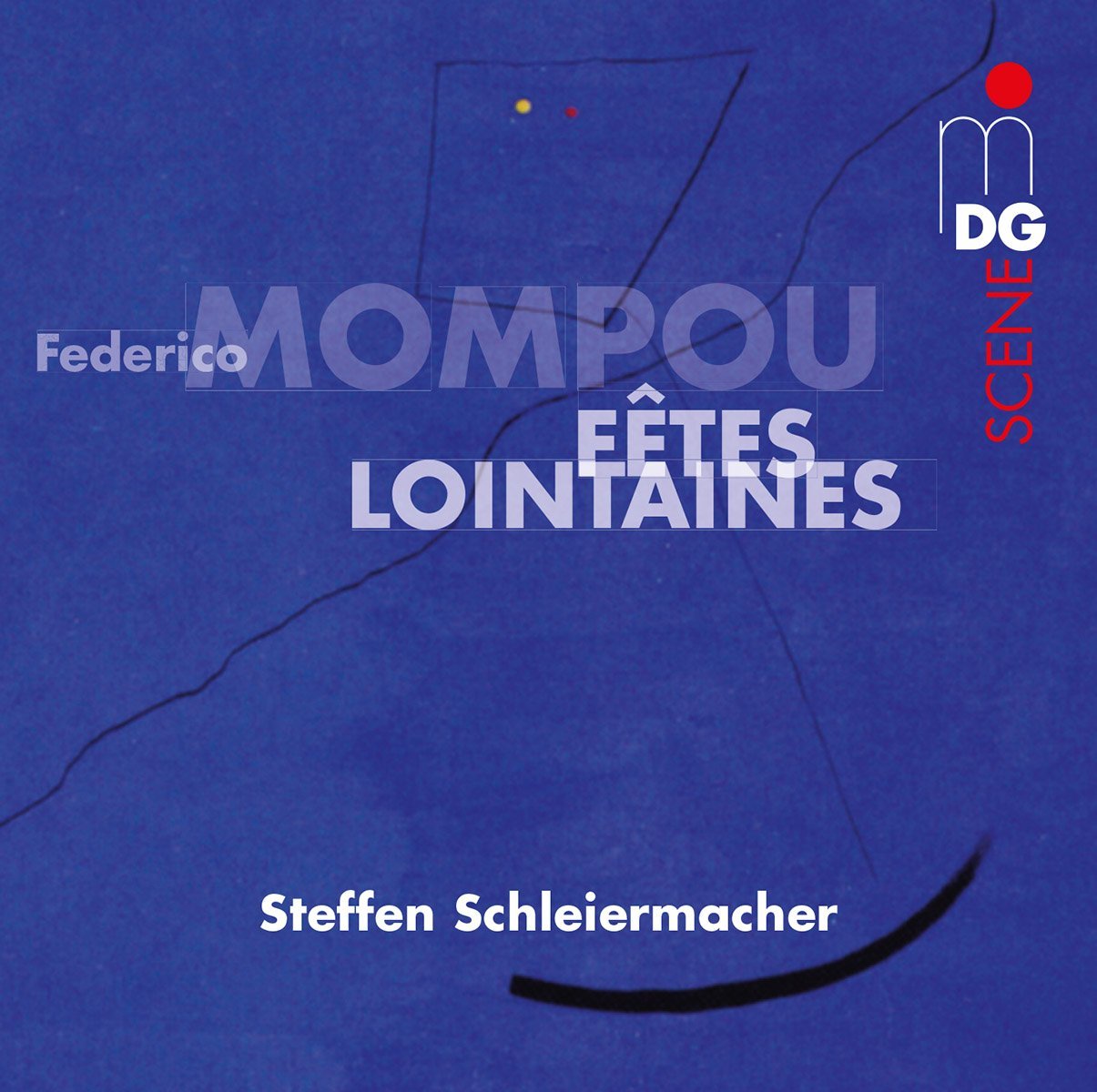 Mompou: Fêtes Lointaines Steffen Schleiermacher (piano) (MDG)
Mompou: Fêtes Lointaines Steffen Schleiermacher (piano) (MDG) A tonic for a grey, drizzly morning was the Castalians' Kilrenny concert, with Cristina
A tonic for a grey, drizzly morning was the Castalians' Kilrenny concert, with Cristina  By early evening the last of the week’s rain had cleared for a calm night in Anstruther – aurally shattered, perhaps, by the louder end of the Shibe/Bliss double act at the tiny Dreel Halls. It began with that hauntingly inflected and coloured soft playing at which Shibe, more than any other acoustic guitarist I’ve ever heard, truly excels. After exquisite realisations of music from 15th- to 18th-century Scottish manuscripts, Edinburgh-born Shibe (pictured below in the Dreel Halls) gave the first of his eloquent speeches, about the parameters and delights of Crail-born James Oswald’s music, extracting magic from the 11-note limitations born of the fiddle Oswald played in the 1700s. Bliss followed Messiaen’s
By early evening the last of the week’s rain had cleared for a calm night in Anstruther – aurally shattered, perhaps, by the louder end of the Shibe/Bliss double act at the tiny Dreel Halls. It began with that hauntingly inflected and coloured soft playing at which Shibe, more than any other acoustic guitarist I’ve ever heard, truly excels. After exquisite realisations of music from 15th- to 18th-century Scottish manuscripts, Edinburgh-born Shibe (pictured below in the Dreel Halls) gave the first of his eloquent speeches, about the parameters and delights of Crail-born James Oswald’s music, extracting magic from the 11-note limitations born of the fiddle Oswald played in the 1700s. Bliss followed Messiaen’s  There was more outside-the-box thinking at the Sunday afternoon concert in Anstruther Town Hall, uniting the visceral duo of Shetland fiddler Chris Stout and Dundee-born harpist Catriona McKay with a groundbreaking string offshoot of the Scottish Chamber Orchestra, Mr McFall’s Chamber. The main work in their half of the concert was the unashamedly populist synthesis of Scottish, Danish and Norwegian music in the premiere of Henning Sommerro’s Chrysillis. It celebrates the grandson of a Crail weaver, Thomas Kingo, who had transplanted to Denmark, where two generations later Thomas the Younger became a famous poet, publisher and composer of hymns still popular in Scandinavia today. A little of this, and of the vivacious dance-pieces from the Stout-McKay duo, went a long way; to enjoy it all to the full, you needed to get up and dance. And for the first half the setting might better have been an East Neuk pub with a pint on the table around midnight, the better to mellow to the super-subtle Norwegian duo of Hardanger fiddler Nils
There was more outside-the-box thinking at the Sunday afternoon concert in Anstruther Town Hall, uniting the visceral duo of Shetland fiddler Chris Stout and Dundee-born harpist Catriona McKay with a groundbreaking string offshoot of the Scottish Chamber Orchestra, Mr McFall’s Chamber. The main work in their half of the concert was the unashamedly populist synthesis of Scottish, Danish and Norwegian music in the premiere of Henning Sommerro’s Chrysillis. It celebrates the grandson of a Crail weaver, Thomas Kingo, who had transplanted to Denmark, where two generations later Thomas the Younger became a famous poet, publisher and composer of hymns still popular in Scandinavia today. A little of this, and of the vivacious dance-pieces from the Stout-McKay duo, went a long way; to enjoy it all to the full, you needed to get up and dance. And for the first half the setting might better have been an East Neuk pub with a pint on the table around midnight, the better to mellow to the super-subtle Norwegian duo of Hardanger fiddler Nils  The full Bowhouse experience was the immersive De Profundis, masterminded by festival director Svend McEwan-Brown and that superb trumpeter John Wallace (pictured above with local brass players), scion of a family where three generations worked in the mining industries around Glenrothes. The brass band tradition originating in those Fife communities in the 1850s had been represented by such ensembles as the Coaltown of Balgonie Prize Silver Band, in which young Wallace played, and which leagued with the still-superb Tullis Russell Mills Band when the pit closed. The TRMB were among the five groups of young and old arraigned in the smoky semi-dark of the Bowhouse as we punters wandered in and around, catching strains of Walford Davies’s De Profundis alongside harmonised Hebridean psalm singing arranged by Wallace and interlaced with poems grippingly projected by actor Maureen Beattie. There would have been old former miners in the audience as well as children learning about their grandparents’ life in artistic form. Of the four ENF immersive events I’ve attended, this felt the most meaningful.
The full Bowhouse experience was the immersive De Profundis, masterminded by festival director Svend McEwan-Brown and that superb trumpeter John Wallace (pictured above with local brass players), scion of a family where three generations worked in the mining industries around Glenrothes. The brass band tradition originating in those Fife communities in the 1850s had been represented by such ensembles as the Coaltown of Balgonie Prize Silver Band, in which young Wallace played, and which leagued with the still-superb Tullis Russell Mills Band when the pit closed. The TRMB were among the five groups of young and old arraigned in the smoky semi-dark of the Bowhouse as we punters wandered in and around, catching strains of Walford Davies’s De Profundis alongside harmonised Hebridean psalm singing arranged by Wallace and interlaced with poems grippingly projected by actor Maureen Beattie. There would have been old former miners in the audience as well as children learning about their grandparents’ life in artistic form. Of the four ENF immersive events I’ve attended, this felt the most meaningful. Those qualities abounded in the following afternoon’s
Those qualities abounded in the following afternoon’s 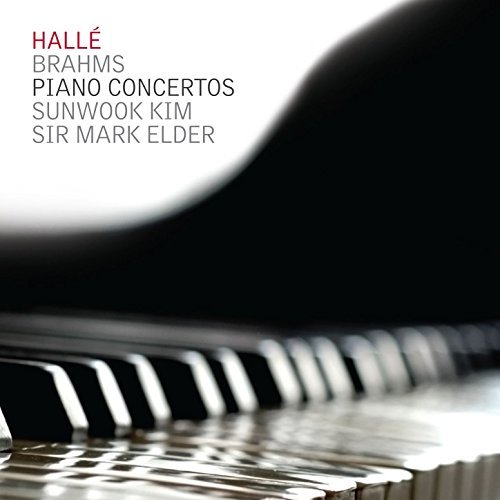 Brahms: Piano Concertos Sunwook Kim (piano), Hallé/Sir Mark Elder (Hallé)
Brahms: Piano Concertos Sunwook Kim (piano), Hallé/Sir Mark Elder (Hallé)